As a BetterHelp affiliate, we receive compensation from BetterHelp if you purchase products or services through the links provided
Narcissistic abuse is a form of emotional and psychological manipulation often perpetrated by individuals with narcissistic personality disorder (NPD). This abuse can take many forms, including verbal and emotional aggression, manipulation, and gaslighting. It can be extremely damaging to the survivor’s mental health and self-esteem.
Understanding and recognizing narcissistic abuse is the first step in seeking help and finding a path to recovery. Therapy can be an essential tool for healing and personal growth, enabling the victim to break free from the abuser’s control and regain their self-worth. Victims of narcissistic abuse may benefit from support groups, professional treatment, and various coping strategies tailored to their unique experiences.
Key Takeaways
- Narcissistic abuse, often stemming from individuals with NPD, can cause serious harm to the victim’s mental health and self-esteem.
- Recognizing the signs and seeking therapy are crucial steps toward healing and personal growth.
- Support groups, professional treatment, and robust coping strategies can assist in regaining self-worth and overcoming the effects of narcissistic abuse.
 Understanding Narcissistic Abuse
Understanding Narcissistic Abuse
Narcissistic abuse is a form of emotional and psychological abuse perpetrated by someone with Narcissistic Personality Disorder (NPD). It often involves manipulation, devaluation, and control. This section will explore the nature of this toxic behavior and how it may affect you or someone you know.
A narcissist possesses an inflated sense of self-importance, lacks empathy, and craves admiration. They can be charming and confident, but this façade hides insecurity and vulnerability. Narcissists often use manipulation tactics to maintain their distorted self-image and assert dominance over others.
Here are some common tactics used by narcissists:
- Gaslighting: making you doubt your perceptions, feelings, and experiences to maintain control over you
- Triangulation: pitting people against each other to remain the center of attention or to achieve a specific goal
- Love bombing: excessive praise and attention to gain trust, often followed by devaluation and discard
- Projection: accusing you of the negative traits and behaviors they embody themselves
- Silent treatment: withdrawing affection or communication to punish or maintain control
The narcissistic abuse cycle typically follows a pattern of idealization, devaluation, and discard. Once the narcissist has secured your trust and admiration, they may begin devaluing you. They may belittle, criticize, or undermine your self-worth to make you feel inferior. The final cycle stage, discard, can be an abrupt and painful ending to the relationship, leaving the victim feeling confused, devastated, and emotionally drained.
It’s important to recognize these red flags and understand that the issue isn’t a lack of personal strength but rather an intricate web of manipulation woven by the narcissist. Awareness of narcissistic traits and abuse tactics can help you identify potentially harmful relationships and seek support to escape the cycle of abuse.
If you or someone you know is experiencing narcissistic abuse, remember that it’s not your fault, and seeking help from a professional therapist or support group can be essential in recovery. By understanding the nature of narcissistic abuse, you can empower yourself and others to break free from this toxic cycle and regain your self-worth.
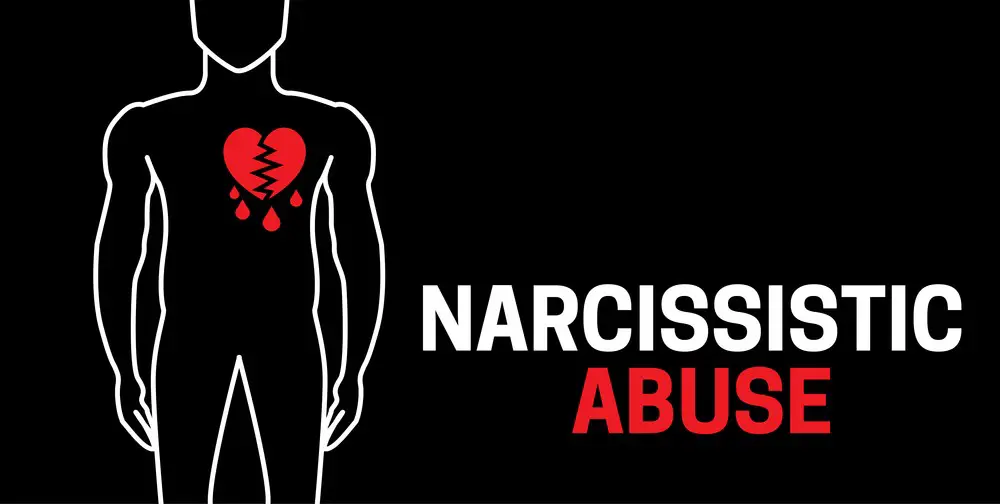
Recognizing Symptoms of Narcissistic Abuse
Recognizing the signs of narcissistic abuse is vital to begin the healing process. This section will cover the most common emotional and physical manifestations to look out for.
Emotional Indicators
Narcissistic abuse can have a significant impact on your emotional well-being. Some common emotional symptoms include:
- Depression: You may experience persistent sadness, hopelessness, and loss of interest in activities.
- Anxiety: Excessive worry and fear can manifest in several aspects of your life.
- Mood swings: You might frequently feel emotionally unstable, with rapid shifts between moods.
- Irritability: Feeling easily annoyed, angry, or on edge with little provocation is common.
- Racing thoughts: A tendency to have an influx of thoughts and concerns that are difficult to silence.
- Nightmares: Disturbing dreams about the narcissistic abuser or the abuse itself can interrupt your sleep.
 Physical Manifestations
Physical Manifestations
The effects of narcissistic abuse aren’t limited to your emotions. Physical symptoms linked to the abuse can also manifest, such as:
- Difficulty sleeping: Insomnia or restless sleep patterns may occur due to emotional distress.
- Headaches: Frequent tension headaches can indicate the stress imposed by narcissistic abuse.
- Stomachaches: Gastrointestinal issues, like stomach pain and digestive problems, can arise due to chronic stress.
- Body aches: Muscle tension and pain in your body may indicate unresolved emotional distress.
- Memory loss: Struggles with remembering details and events can develop due to the overwhelming stress and trauma.
By understanding these symptoms, you can recognize the effects of narcissistic abuse on your well-being. However, seeking professional help to address these symptoms and heal from the abuse you’ve experienced is crucial.
Narcissistic Abuse in Relationships
Narcissistic abuse can occur in various types of relationships, leading to emotional and psychological harm. This section will explore how narcissistic abuse manifests in family, romantic partnerships, and friendships.
Family
Growing up with narcissistic family members can leave you feeling constantly belittled and struggling for validation. Some signs of narcissistic abuse in a family setting may include:
- Excessive control: A narcissistic parent may exert extreme control over you by dictating choices and manipulating your life.
- Gaslighting: They may deny, alter, or manipulate your experiences and emotions to make you doubt your sanity.
- Emotional neglect: Your emotional needs might be dismissed, leaving you feeling unloved and unsupported.
If you are experiencing this kind of abuse in your family, consider seeking professional help and setting boundaries with the abusive family member.
Romantic Partners
In romantic relationships, a narcissistic partner may use manipulation and control to maintain power over you. Some indicators of narcissistic abuse in romantic partnerships include:
- Love-bombing: Initially showering you affection and admiration, then abruptly withdrawing or becoming emotionally distant.
- Isolation: Gradually cutting you off from friends, family, and social connections to create dependency on them.
- Gaslighting: Manipulating your reality, making you doubt your feelings, perceptions, and memories.
You may need to establish boundaries and potentially consider leaving the relationship to protect yourself from further harm. Reach out to a therapist or support group for guidance on how to handle this kind of situation.
Friendship
Narcissistic abuse can also occur in friendships, making it challenging to maintain self-esteem or trust in others. Signs of such abuse within friendships might involve:
- One-sidedness: The friendship mainly focuses on fulfilling the narcissist’s needs without much regard for your feelings or interests.
- Passive-aggressive behavior: The narcissist may make subtle disparaging remarks, undermine your achievements, or try to guilt you.
- Exploitation: They may take advantage of you and your resources without reciprocating or showing genuine appreciation.
In the case of narcissistic abuse in friendships, it is crucial to learn how to assert yourself, set boundaries, and seek support from healthier relationships, therapy, or support groups.

The Impact of Narcissistic Abuse on Self-Esteem
Narcissistic abuse can have a profound impact on your self-esteem. It can leave you feeling unworthy and doubting your worth. This type of abuse often involves manipulation, humiliation, and a lack of empathy from the abuser.
One of the primary effects of narcissistic abuse is a significant drop in self-esteem. You may begin to view yourself as inadequate or worthless, and these feelings can persist long after the abusive relationship has ended. The constant manipulative tactics used by narcissists, such as gaslighting, undermining your achievements, and belittling your emotions, can erode your confidence and sense of self-worth.
Low self-esteem caused by narcissistic abuse can manifest in several ways, including:
- Questioning your judgment and decisions
- Difficulty asserting your needs and boundaries
- Feeling undeserving of love, respect, or success
- Constantly seeking validation from others
- Fear of rejection or abandonment
A narcissist’s lack of empathy can exacerbate these feelings, making it challenging for you to form healthy connections with others. Without the support and understanding of loved ones, rebuilding your self-esteem after experiencing narcissistic abuse becomes even harder. Therapy and a strong support system are crucial in your recovery journey.
To reclaim your self-esteem after narcissistic abuse, consider the following strategies:
- Seek professional therapy to help you recognize the impact of the abuse and develop coping mechanisms
- Surround yourself with supportive people who can validate your emotions and experiences
- Build your sense of self-worth by setting attainable goals, engaging in activities you enjoy, and practicing self-care
- Develop healthy boundaries and learn to assert them in your relationships
- Challenge negative thought patterns and remind yourself daily of your worth and strengths
As you work on rebuilding your self-esteem, remember that healing from narcissistic abuse is a process that takes time. Be patient and give yourself the love and compassion you deserve on your journey toward self-discovery and recovery.
 Coping Strategies for Victims of Narcissistic Abuse
Coping Strategies for Victims of Narcissistic Abuse
As a victim of narcissistic abuse, it’s crucial to understand that healing and recovery take time and effort. Here are some coping strategies to help you through this challenging period:
1. Regain control over your life. Narcissistic abusers often manipulate and control their victims. To overcome this, begin by setting boundaries and practicing assertiveness. Stand your ground against any attempts to control you and distance yourself from the narcissist whenever possible.
2. Address PTSD, stress, and anxiety. Narcissistic abuse often leads to PTSD, stress, and anxiety. Seek professional help from a therapist, counselor, or support group to help you process and heal from these symptoms. Don’t be afraid to ask for help, as this is the first step towards recovery.
3. Engage in regular exercise. Exercise can play a significant role in managing stress and improving your mental health. Make time for physical activities you enjoy, such as walking, running, or swimming, to foster a positive and healthy mindset.
4. Connect with a support group. Joining a support group specifically for victims of narcissistic abuse can make you feel less isolated. Sharing experiences and learning from others can provide invaluable insights to help you on the road to recovery.
5. Bolster your confidence. Rebuilding your self-esteem is essential after enduring narcissistic abuse. Recognize and acknowledge your worth and value by engaging in empowering activities or hobbies, such as volunteering, learning new skills, or pursuing personal interests.
6. Try cognitive behavioral therapy (CBT). CBT can help you identify and replace negative thought patterns with healthier ones. Working with a therapist, this method can aid you in breaking free from the cycle of destructive thoughts that result from narcissistic abuse.
7. Attend therapy sessions. Regular therapy sessions can help you navigate the healing process. Find a therapist who understands narcissistic abuse, its effects, and how to treat it effectively.
Remember, it’s essential to be patient with yourself during this journey. Recovery is a process, and progress may be slow at times, but every step you take brings you closer to healing and reclaiming your life from narcissistic abuse.

Professional Treatment Options for Narcissistic Abuse
Psychotherapy
One of the main treatments for narcissistic abuse is psychotherapy, where a mental health professional, such as a psychologist or psychiatrist, will work with you to help heal from the emotional pain. During these sessions, you’ll dive into your feelings, thoughts, and behaviors related to the abuse. Together, you and your therapist can develop strategies for dealing with feelings of shame, guilt, and anger and eliminating self-destructive patterns.
Talk Therapy
Another popular option for addressing narcissistic abuse is talk therapy, often part of psychotherapy sessions. The goal of talk therapy is to help you better understand your emotions and experiences and give you the tools to cope with the aftermath of narcissistic abuse. Your mental health provider will help you identify patterns and triggers that may lead to unhealthy behaviors and guide you towards healthier ways of coping.
In talk therapy, you may discuss topics such as:
- The impact of the abuse on your life
- Building self-esteem and confidence
- Developing healthy boundaries in relationships
- Strategies for healing and moving forward
Group Therapy
Group therapy can be an effective way to heal from narcissistic abuse alongside others who are going through similar experiences. In these settings, led by a mental health professional, you can share your thoughts and feelings while gaining support and insight from other group members. This environment can help you feel less isolated and provide a sense of belonging.
Group therapy sessions can cover a range of subjects, including:
- Understanding narcissistic abuse
- Sharing personal experiences and coping strategies
- Learning how to set boundaries
- Building healthier relationships in the future
Utilizing these professional treatment options, you can work towards recovery and reclaim control over your life after experiencing narcissistic abuse. Each therapy approach varies, so it’s important to choose the one that best aligns with your needs and preferences.
Long-Term Effects and Recovery from Narcissistic Abuse
Experiencing narcissistic abuse can lead to long-term effects that deeply impact your life. Healing from this type of trauma often involves understanding and overcoming these consequences, so let’s explore them and the recovery process.
One long-term effect of narcissistic abuse is post-traumatic stress disorder (PTSD). This can cause symptoms like intrusive thoughts, flashbacks, and emotional numbness. You must work with a trained mental health professional if you’re experiencing PTSD. They can help you develop strategies to cope with these intense feelings and regain control over your life.
Another consequence of narcissistic abuse is the development of self-destructive behaviors. This can involve substance abuse, self-harm, or unhealthy relationships. To break free from these harmful patterns, reflect on why you’ve developed these behaviors and any emotions you’re trying to escape. Enlist the support of a therapist or counselor to help you identify healthier coping strategies and work through your feelings.
The road to healing from narcissistic abuse often begins with breaking the cycle. Recognize the patterns of behavior the abuser used and spot the signs of manipulation. This might include excessive flattery, gaslighting, and isolating you from friends or family. Being aware of these tactics can help you avoid falling into a similar situation.
Recovery from narcissistic abuse also involves rebuilding your self-esteem. Find ways to:
- Engage in activities you enjoy and excel at
- Surround yourself with supportive people
- Set personal goals and celebrate your achievements
- Learn to challenge negative self-talk
Remember, healing from narcissistic abuse is a journey that takes time, patience, and effort. Give yourself the space to process your emotions and seek the guidance of professionals when needed. Ultimately, your strength and resilience can lead you to a healthier and more fulfilling life, free from the shadow of narcissistic abuse.
 Red Flags: When Therapy Becomes Essential
Red Flags: When Therapy Becomes Essential
You might be wondering: “When should I consider therapy?” Narcissistic abuse can be so insidious that sometimes you don’t recognize the damage until it’s done a number on your mental health. Here are some warning signs that it’s time to seek professional help:
- Constant Anxiety: You’re always on edge, never at ease.
- Low Self-Esteem: You feel worthless or not good enough, especially when your abuser belittles you.
- Isolation: You find yourself pulling away from friends and family.
- Depression: An overwhelming sense of despair engulfs you regularly.
- Confusion and Gaslighting: You’re constantly second-guessing reality due to the manipulative tactics employed by your abuser.
Setting Goals: Your Therapeutic Roadmap
Once you’ve recognized the need for therapy, the next step is setting your goals. Goal-setting offers you a clear path to healing, guiding each session with purpose. Typical goals might include:
- Understanding the Abuse: Recognize patterns and behaviors that constitute narcissistic abuse.
- Rebuilding Self-esteem: Develop strategies to rebuild your sense of worth.
- Setting Boundaries: Learn to set and maintain healthy boundaries.
- Coping Mechanisms: Develop robust coping skills to deal with emotional pain.
Progress: Celebrate the Small Wins
In therapy, progress might not always be straight, and that’s okay. You may have setbacks, but it’s the small victories that count. Celebrating your progress, however incremental, is vital for your healing journey. Whether it’s standing up to your abuser, reclaiming a lost hobby, or just experiencing a good day, these moments are worth acknowledging.
The Core of Resilience: Building a Stronger You
Resilience isn’t about forgetting or glossing over your challenges; it’s about learning and growing from them. Narcissistic abuse therapy aims to make you resilient by equipping you with the tools to face hardships and bounce back stronger. Resilience often emerges from:
- Self-awareness: Recognizing your emotional triggers and responses.
- Social Support: Finding strength in supportive communities, whether it’s friends, family, or support groups.
- Healthy Coping: Adopting effective coping strategies, like mindful meditation, journaling, or physical exercise.
- Purposeful Living: Finding meaning in your life beyond the abuse, such as fulfilling work or activities.
The Journey to Recovery: It’s a Marathon, Not a Sprint
Healing from narcissistic abuse is long, but every step forward counts. Therapy offers the roadmap, guiding you through the fog towards a more resilient you. By recognizing the signs, setting clear goals, celebrating progress, and embracing resilience, you’re not just surviving—you’re thriving. And isn’t that the ultimate goal?
Resources and Support
Finding help and support through narcissistic abuse therapy can be life-changing. Knowing where to turn for resources and assistance when you need them is essential. Several organizations, support networks, and professionals specialize in domestic violence and mental health to help you heal and regain your well-being.
National Domestic Violence Hotline provides information, resources, and support for individuals affected by narcissistic abuse. You can reach out to them at 1-800-799-SAFE (7233). They offer confidential assistance 24/7, connecting you to local resources and services.
American Psychiatric Association (APA) can help you locate mental health professionals who specialize in narcissistic abuse therapy. By using their Find a Psychiatrist tool, you’ll be able to find the right professional to address your specific concerns.
Support groups can be an invaluable resource for victims of narcissistic abuse. Connecting with others who have experienced similar traumas can provide a sense of community and understanding. Websites such as Psychology Today or your local community center can help you find support groups tailored to your needs.
Mental Health Nursing Practice professionals are well-equipped to guide and support those struggling with narcissistic abuse’s consequences. Contact local mental health clinics or your primary care provider for assistance in finding a mental health nurse practitioner.
Remember, you don’t have to navigate your healing journey alone. Utilizing these resources and support networks will give you valuable assistance and encouragement as you work toward recovery.
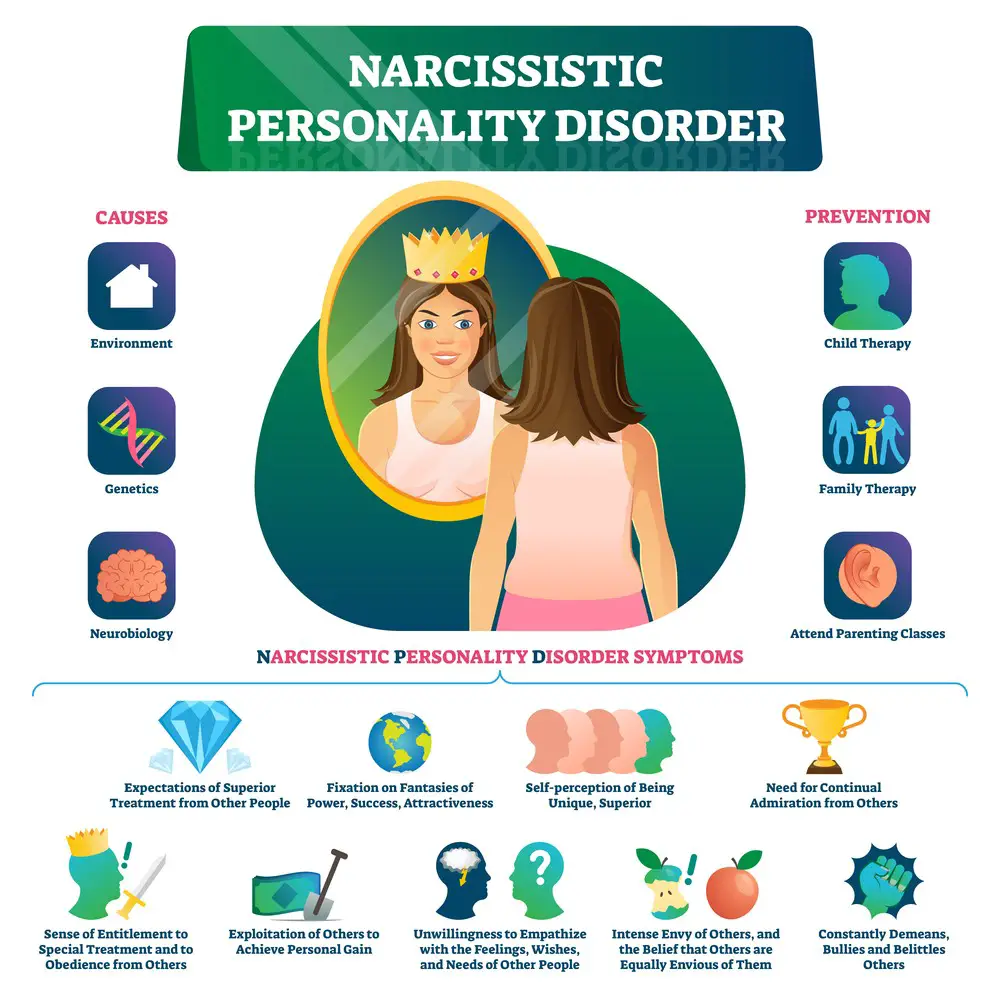
Understanding Narcissistic Personality Disorder (NPD)
Narcissistic Personality Disorder (NPD) is a mental health condition that falls under the category of personality disorders. It is characterized by excessive self-importance, extreme need for admiration, and a lack of empathy towards others.
The Diagnostic and Statistical Manual of Mental Disorders, Fifth Edition (DSM-5), is the primary tool used by clinicians for diagnosing personality disorders like NPD. According to the DSM-5, some key criteria for a diagnosis of NPD include:
- A grandiose sense of self-importance
- Preoccupation with fantasies of unlimited success, power, beauty, or ideal love
- Believing oneself to be special or unique and should only associate with other high-status individuals or institutions
- Requiring excessive admiration from others
- Possessing a sense of entitlement
- Exploiting others for personal gain
- Lacking empathy and being unwilling to recognize or identify with the feelings and needs of others
- Being envious and believing others are envious of them
- Exhibiting arrogant or haughty behaviors or attitudes
For those who struggle with NPD, their quality of life can be severely diminished due to issues related to self-worth and relationships. The inability to forgive oneself may lead to a deep, unrelenting self-criticism that exacerbates the disorder.
Keep in mind that only a licensed mental health professional can diagnose NPD. If you or someone you care about is experiencing symptoms related to NPD, seeking guidance and support from a qualified professional is essential.
When dealing with NPD, it is essential to:
- Maintain realistic goals and expectations
- Ask questions and be willing to learn
- Focus on self-acceptance and self-worth
- Manage co-occurring medical conditions that could impact mental health
Remember, recovering from NPD will likely require long-term dedication to addressing the underlying issues and building a healthier self-image. With commitment and professional support, overcoming this disorder is possible and can lead to improved well-being and emotional stability.

Narcissistic Abuse and Addiction
Narcissistic abuse can lead to addiction as a coping mechanism. It’s not uncommon for victims to turn to alcohol or drugs to numb the emotional pain they experience. Unfortunately, this can create new problems that make recovery even more challenging.
Childhood plays a pivotal role in shaping a person’s life. If you had narcissistic parents, you likely experienced emotional manipulation and were made to feel shame for not meeting their unrealistic expectations. These deep-rooted feelings of inadequacy can drive you to seek comfort in addictive substances.
There are several ways narcissistic abuse and addiction can intersect:
- Self-medicating: You might use drugs or alcohol to escape the overwhelming emotions resulting from narcissistic abuse.
- Rebellion: Turning to substance abuse can be a way to rebel against a narcissist’s control or act out your feelings of anger and helplessness.
- Low self-worth: Narcissistic abuse often leaves you with feelings of worthlessness, which can contribute to substance abuse as a way to reinforce those beliefs.
Healing from narcissistic abuse while breaking free from addiction is challenging but achievable. It’s essential to understand that both issues, addiction and narcissistic abuse, require separate attention and treatment. You can implement the following strategies to start your journey toward recovery:
- Seek professional help: A therapist or counselor specializing in addiction and narcissistic abuse can help you navigate through these intertwined issues. They can provide guidance and personalized strategies for your specific situation.
- Build a support network: Having people who understand and empathize with your experiences can be crucial in healing. Join support groups, reach out to friends, or connect with others who have gone through similar situations.
- Focus on self-care: Dedicate time to nurturing yourself mentally, emotionally, and physically. Engage in activities that bring you joy and help build your self-esteem.
Remember that healing from narcissistic abuse and addiction takes time and patience. It’s a step-by-step process, and setbacks are a natural part of the journey. Be gentle with yourself and trust that you can overcome these challenges.
Gaslighting as a Narcissistic Abuse Tactic
Gaslighting is a manipulative technique narcissistic abusers use to make you question your reality and sanity. In doing so, they exert control and maintain power over you. They accomplish this through lying, manipulation, coercion, and playing on your sensitivity to criticism.
You may start to notice patterns in the abuser’s behavior, such as a penchant for constantly putting you down or making you feel responsible for everything that goes wrong. Narcissists have a deep-seated need to feel superior, and gaslighting helps them achieve that.
When you’re experiencing gaslighting, you might notice the following:
- Lying: Narcissistic abusers may blatantly lie or give false information to manipulate you. They may tell you something happened that didn’t, or vice versa. Over time, this constant lying can leave you unsure of what’s true and doubt your memory.
- Manipulation: Gaslighting involves subtle manipulative tactics to make you question your perceptions. For example, they might deny doing or saying something you clearly remember, leaving you confused and questioning your sanity.
- Coercion: Coercion uses force or threats to change your behavior or beliefs. In gaslighting, coercion often involves emotional threats or ultimatums, like threatening to leave the relationship, disown you, or spread lies about you.
- Sensitivity to criticism: Narcissistic abusers are extremely sensitive and will go to great lengths to avoid it. If you confront them about their abusive behavior, they may try to gaslight you by claiming you’re overreacting, being too sensitive, or even that you’re the one who’s being abusive.
It’s essential to recognize gaslighting and understand it’s not your fault. If you find yourself questioning your thoughts, feelings, or experiences, it can be helpful to:
- Keep a journal of incidents and conversations when you feel disoriented or uncertain.
- Seek validation from supportive friends or family members who can help confirm that your perceptions are accurate.
- Trust your intuition and remember that it’s not normal for someone to doubt your reality constantly.
- Reach out to a mental health professional who can support you in overcoming the effects of narcissistic abuse and gaslighting.
Frequently Asked Questions

What type of therapy is effective for narcissistic abuse?
Several types of therapy can be effective in helping victims of narcissistic abuse, including:
- Cognitive Behavioral Therapy (CBT)
- Dialectical Behavior Therapy (DBT)
- Schema Therapy
- Eye Movement Desensitization and Reprocessing (EMDR)
- Psychodynamic Therapy
Each person’s needs and circumstances are unique, so working with a therapist who understands narcissistic abuse and can help you recover is important.
How do therapists help victims of narcissistic abuse?
Therapists can help victims of narcissistic abuse by:
- Providing a safe and supportive environment to discuss and process the abuse
- Helping identify and challenge unhealthy beliefs and thought patterns
- Teaching coping strategies and skills to manage symptoms and triggers
- Offering guidance and tools to rebuild self-esteem and self-worth
- Supporting recovery from emotional trauma
What are common signs of narcissistic abuse?
Some common signs of narcissistic abuse include:
- Constant criticism and belittling
- Manipulation and control tactics
- Gaslighting and making the victim doubt their own experiences or perceptions
- Isolating the victim from friends and family
- Verbal and emotional abuse, such as threats, name-calling, and blaming
Recognizing these signs can help victims understand and validate their experiences, paving the way for healing and recovery.
 Can CBT help with narcissistic abuse recovery?
Can CBT help with narcissistic abuse recovery?
Yes, Cognitive Behavioral Therapy (CBT) can be helpful in narcissistic abuse recovery. CBT focuses on changing unhelpful thoughts and behaviors by:
- Identifying distorted thoughts and beliefs
- Challenging negative thinking patterns
- Developing new, healthier ways of thinking
- Learning coping strategies to deal with negative emotions and stress
CBT can help victims rebuild their self-esteem, regain confidence, and learn to trust themselves again.
How long does it take to recover from narcissistic abuse?
There is no specific timeline for recovering from narcissistic abuse, as it varies depending on the individual and their circumstances. Recovery may take several months to years and often requires ongoing support from a therapist, support groups, or other resources.
What self-help strategies can be useful for dealing with narcissistic abuse?
Some self-help strategies that can help cope with narcissistic abuse include:
- Practicing self-compassion and self-care
- Seeking out and joining support groups
- Limiting contact with the abuser and setting boundaries
- Educating yourself about narcissistic abuse and its effects
- Journaling or expressing your feelings through creative outlets like art or writing
Remember that self-help strategies are best used with professional therapy and guidance.
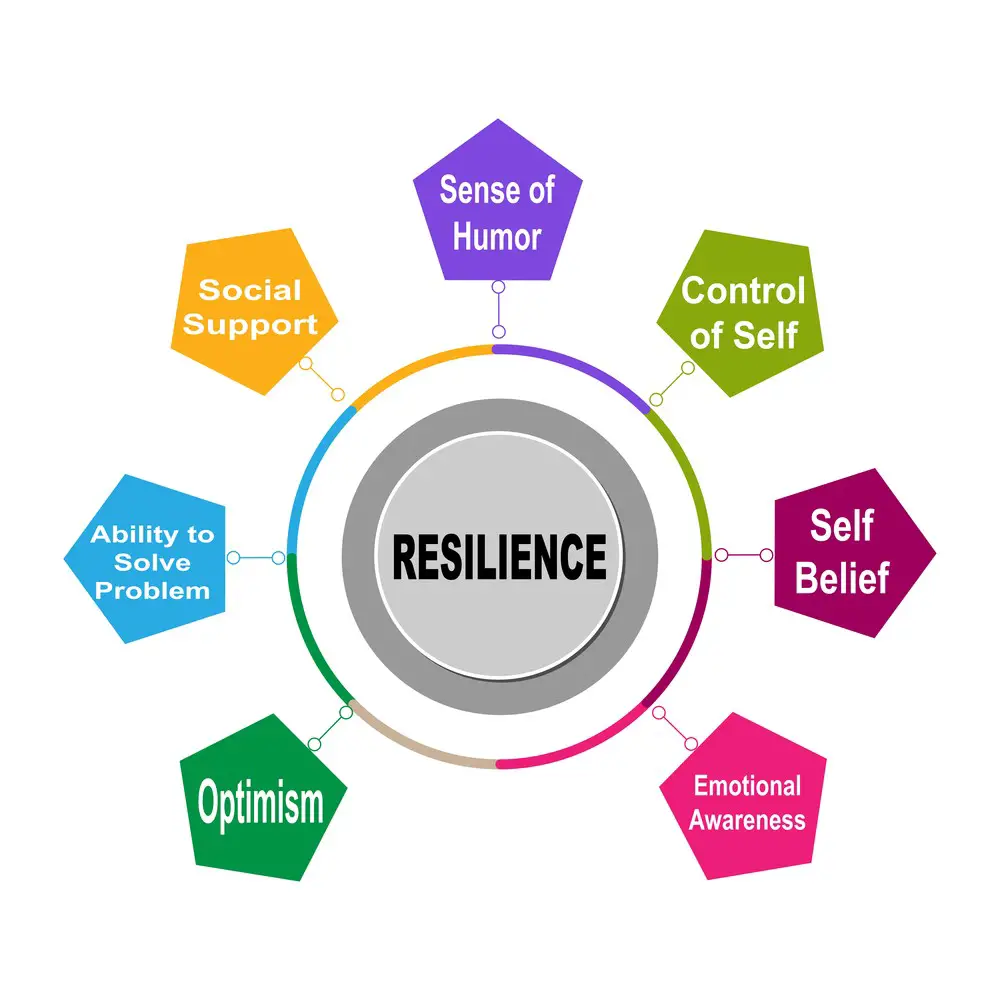
? Weathering Life’s Storms: Who I Am
Hi there! I’m Jacob Maslow, and if you’re reading this, you’re probably navigating some complicated life waters, just like me. I’ve faced challenges that took me to the edge, from surviving 9/11—where I lost more than a thousand coworkers—to enduring a gut-wrenching estrangement from my children.
? From Two Households to One Empty Nest
Life threw curveballs after my separation. I went from being a stay-at-home dad, nurturing our kids while my ex worked, to staring at two empty bedrooms in my apartment. The emotional weight of this transition is heavy, but it’s a part of my story that shapes who I am today.
? The Narcissistic Tornado: My Ex
My ex is a character. As her beauty fades, her narcissism intensifies, almost like a defense mechanism against the cruel hands of time. She’s pulled our kids into her sphere of influence, severing the loving relationship I once had with them.
? The Silent Treatment: Court Battles & Broken Promises
Communication with my children has ground to a halt due to my ex’s refusal to comply with court orders. She even backed out of reunification therapy when it looked like our kids were warming up to reconnecting with me.
? The Healing Pill: BetterHelp & Lexapro
In these tough times, I’ve leaned on two lifelines: BetterHelp’s online therapy platform and Lexapro medication. As someone with a fair amount of therapy, I can’t recommend BetterHelp highly enough. It’s been my coping mechanism, my virtual shoulder to lean on.
?♂️ Clearing My Head: The Power of Long Walks
Sometimes, the best therapy is a long walk. Just me, my thoughts, and the great outdoors. These walks are my daily ritual to clear the fog and focus on what matters most—my mental well-being.
? Why I Write: Advocacy Through Words
I pour my experiences into articles about mental health and narcissism to help others facing similar challenges. I also run a legal advice site focused on the harrowing experience of dealing with a spouse who turns kids into weapons rather than co-parenting.
? The Silver Lining: You’re Not Alone
If my journey has taught me anything, resilience is possible, even in the bleakest moments. Through my writings, I offer you a hand. Together, let’s find that path to recovery and resilience.
So there you have it. My life may have dark clouds, but every cloud has a silver lining. And if my stories and advice offer even a glimmer of hope or comfort, I’ve done my job. ?

- 3 Ways Wearing a Hat Can Help Lower Your Stress Levels - April 19, 2025
- Breaking the Silence: Why Men’s Mental Health Matters More Than Ever - April 15, 2025
- How to Transform a Home’s Patio Space into a Relaxing Space - March 23, 2025
This site contains affiliate links to products. We will receive a commission for purchases made through these links.


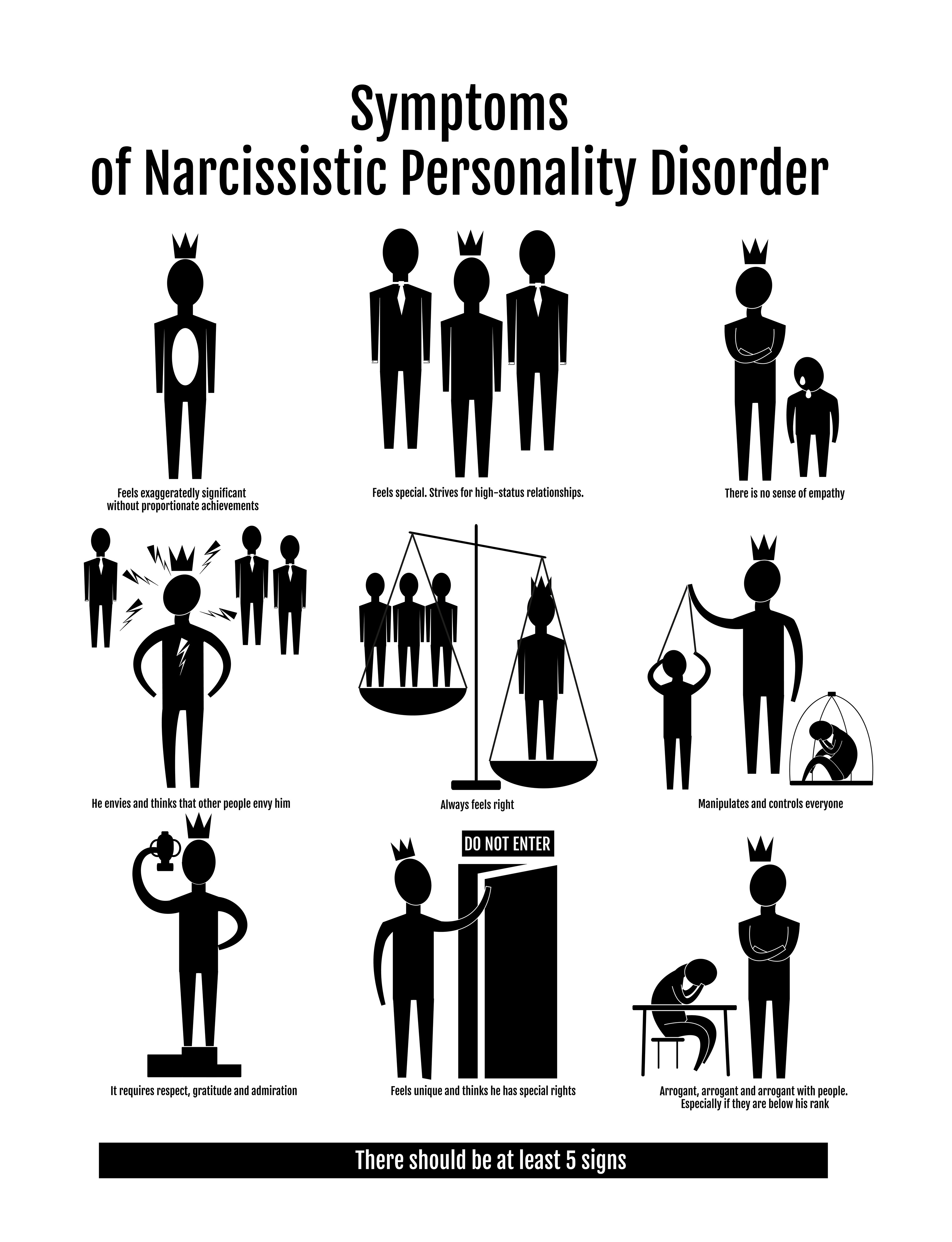 Understanding Narcissistic Abuse
Understanding Narcissistic Abuse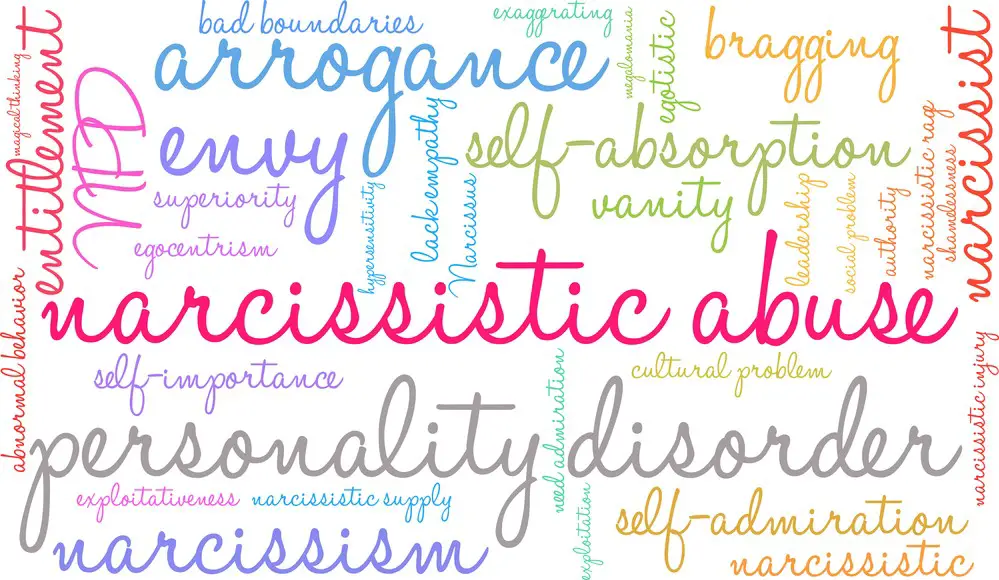 Physical Manifestations
Physical Manifestations Coping Strategies for Victims of Narcissistic Abuse
Coping Strategies for Victims of Narcissistic Abuse Red Flags: When Therapy Becomes Essential
Red Flags: When Therapy Becomes Essential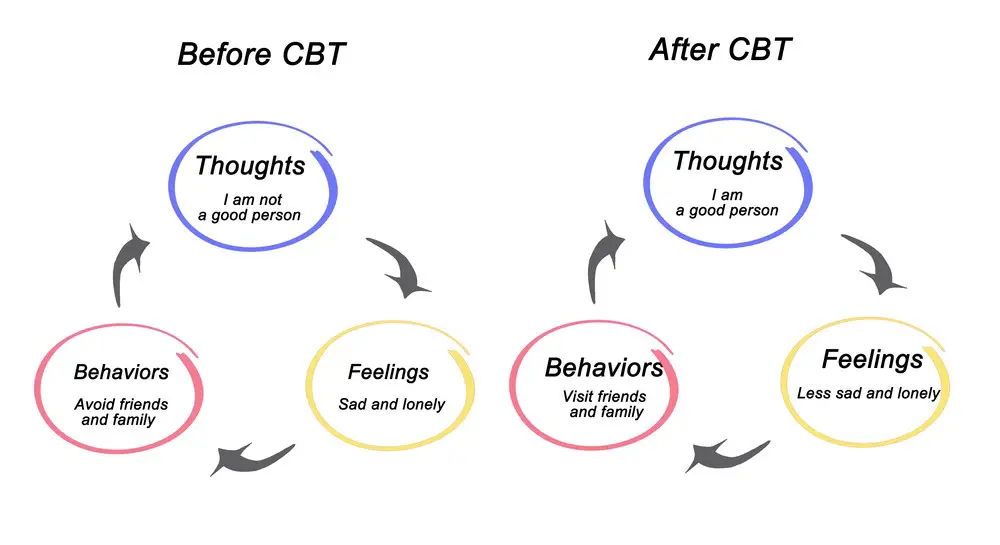 Can CBT help with narcissistic abuse recovery?
Can CBT help with narcissistic abuse recovery?
